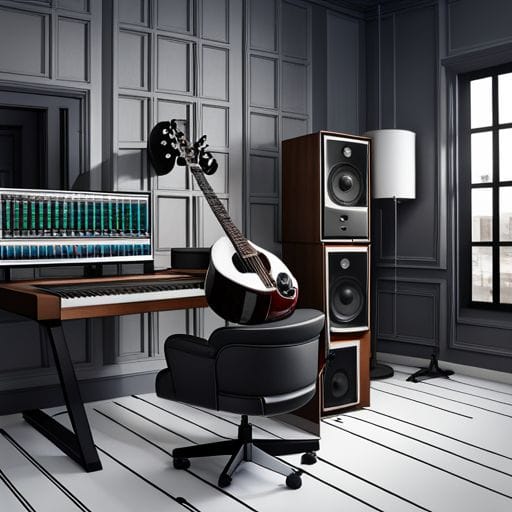Creating Electronic Music: Essential Gear and Software

What types of music gear and software should beginners consider when starting in electronic music production?
Electronic music has steadily risen in popularity over the years. Its distinct beats, captivating melodies, and complex textures have won the hearts of many music lovers worldwide. But have you ever wondered how these intricate sounds are created? The secret lies not just in the creator’s talent, but also in the hardware and software they use.
The Key Components
Creating electronic music requires the right combination of various tools. These generally fall under two categories: gear and software. Let’s explore both.
Essential Gear
- MIDI Controllers: MIDI (Musical Instrument Digital Interface) controllers are instruments that send MIDI data to other devices capable of receiving it. These devices serve as your primary interface with the electronic music software, translating your physical input into digital output.
- Synthesizers: These are integral to producing electronic sounds. They allow for the manipulation of frequencies to produce different tones and elaborative textures. Although software-based synthesizers are popular, hardware versions can offer more hands-on control.
- Sequencers: Sequencers allow for the arrangement of sounds in a pre-determined pattern. This ability to “sequence” sounds can produce full tracks. They can be found as separate hardware units or integrated within other devices like synthesizers and computers.
- Audio Interfaces: These convert analog signals into digital ones that your computer can process. They’re necessary for recording vocals or live instruments and monitoring the audio on studio-grade speakers or headphones.
Software
As for software, or DAWs (Digital Audio Workstations), these are essential for beginners and veterans alike. They not only simulate many pieces of hardware equipment, but they also offer more in terms of digital manipulation. Let’s look at some of the most popular:
- Ableton Live: Known for its intuitive interface and vast array of features, Ableton Live is favored by electronic music producers for live performances and studio production.
- FL Studio: This software is famous for its pattern-based workflow, making it a favorite among electronic and hip hop producers.
- Logic Pro X: An Apple product, Logic Pro X, is recognized for its robust MIDI sequencer. It also features a comprehensive sound library.
- Pro Tools: Undoubtedly an industry standard, Pro Tools is revered for its sophisticated recording capabilities and advanced audio editing.
In Conclusion
Creating electronic music necessitates a combination of skills, creativity, and the right tools. Your choice of gear and software should ultimately depend on your production style and music goals. Remember, the most expensive equipment doesn’t always promise the best music – it is the artist who brings life to the tools.
With this guide, you should now have a basic understanding of the essential gear and software used in electronic music production. So, are you ready to start rocking the electronic music scene?
